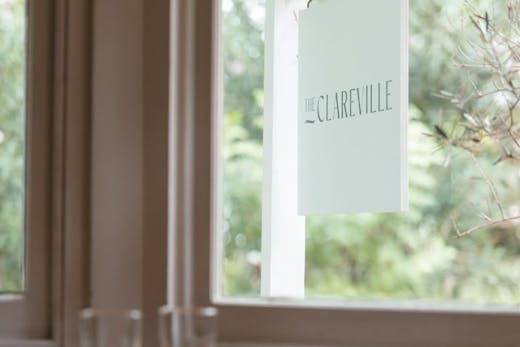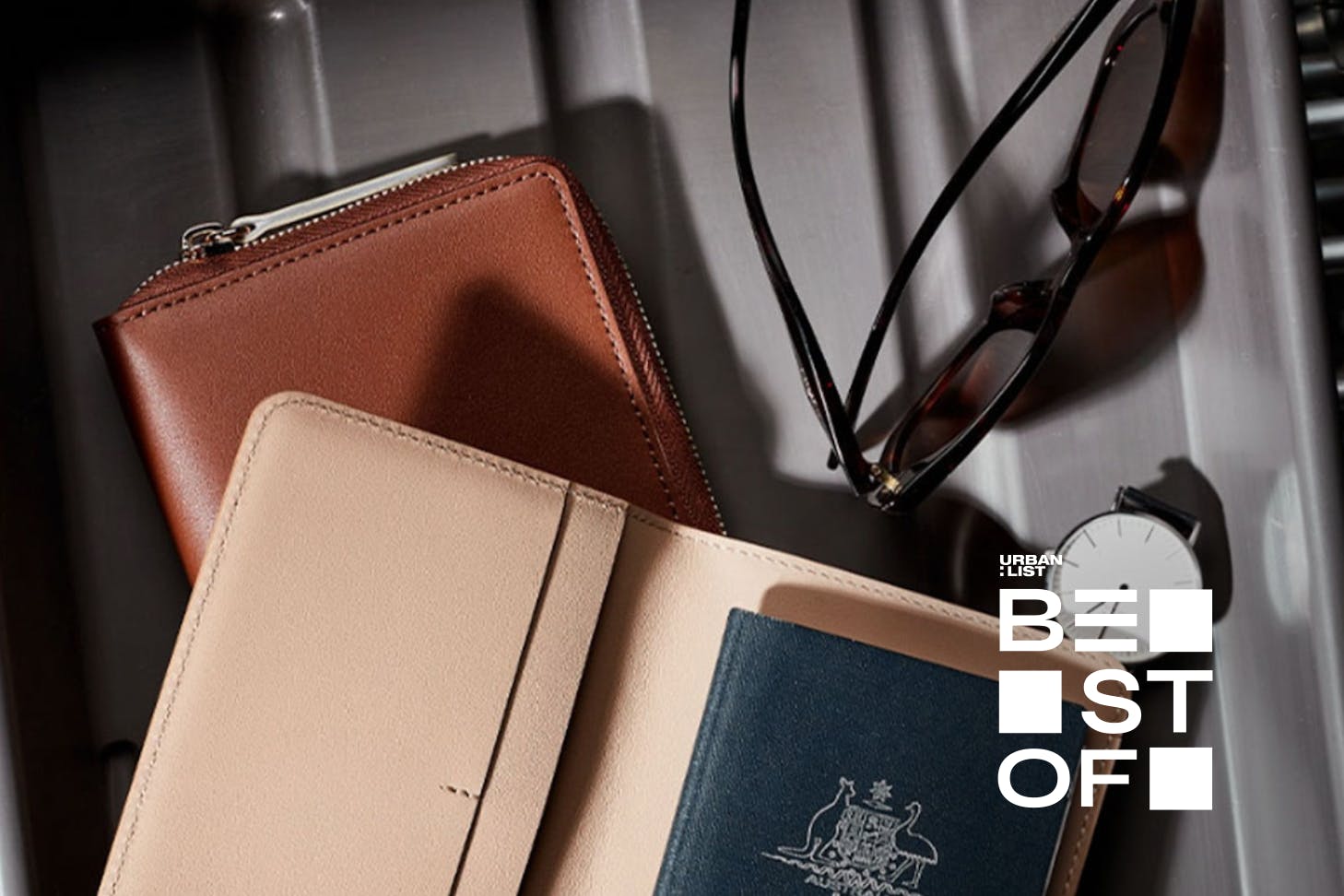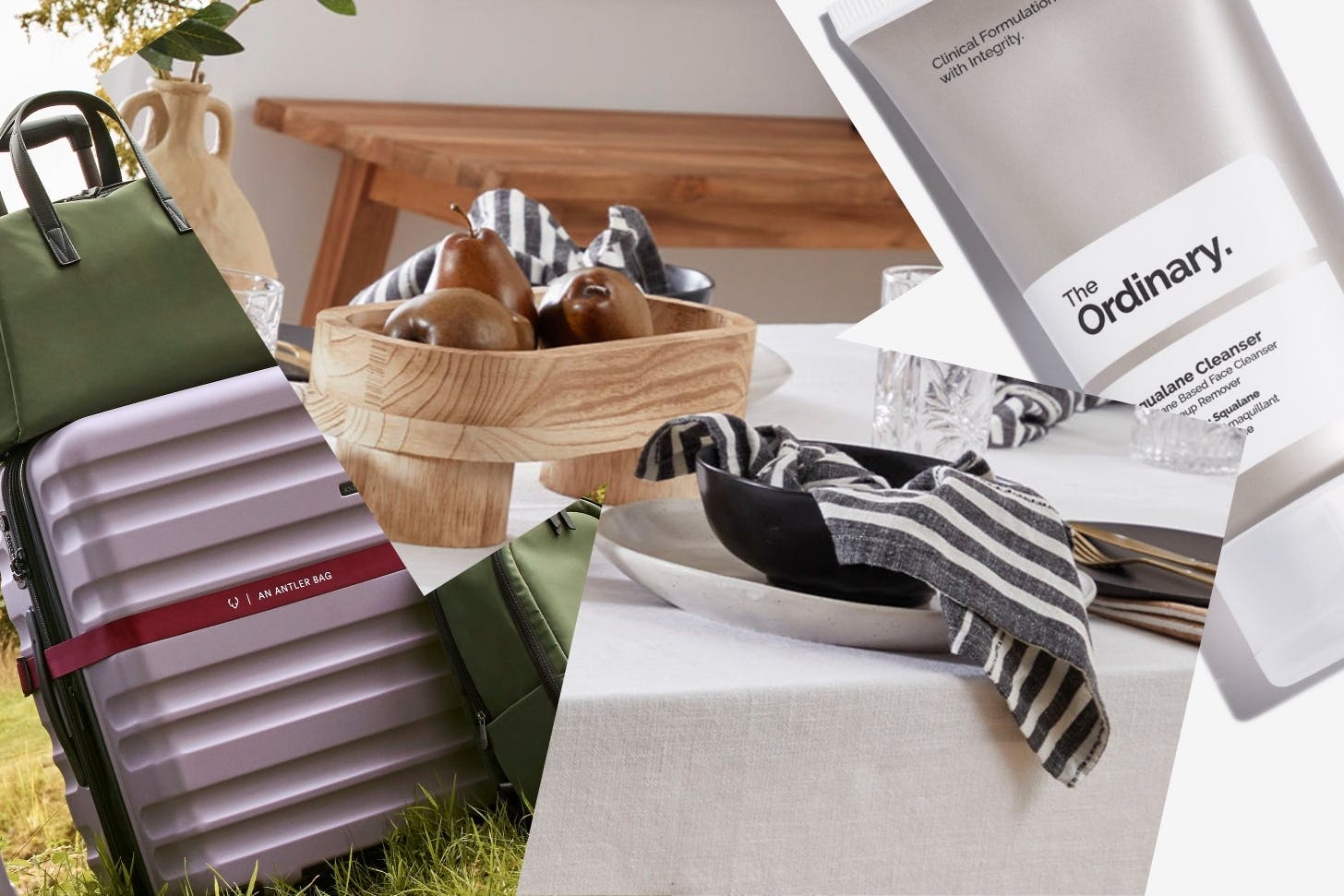.jpg?auto=format%2Ccompress&fit=crop&ar=3:2&w=340)
Urban List Guide To Sydney
Discover the best of Sydney—where to eat, drink, explore and escape, plus local news and cultural must-reads, all curated by Urban List.
News
See All.jpg?auto=format%2Ccompress&fit=crop&ar=3:2&w=340)
Sydney News You Need To Know About

Sydney Fish Market Set To Open In January 2026

Ed Sheeran Brings His Loop Tour To Sydney In 2026: Here’s What To Expect
Features
See All
Notes From The GOAT: Your Guide To Summer Streaming

Matty Fahd Swapped The City For The Country And Found The Magic In Slowing Down

Flying For Love: How Louis Hanson Turned Ghosting Into An Unforgettable Trip
Best Of Sydney
See All
26 Romantic Getaways In Victoria For A Swoonworthy Summer Break

10 Of The Best Cafes In Western Sydney Right Now

25+ Of The Best Cafes In Sydney Right Now
Things To Do
See All
First Nations Women Lead Garrigarrang Badu, A Powerful Act Of Cultural Continuation

Next Level Eats, Stacked Entertainment And Luxe Stays: This Western Sydney Gem Just Got A Glow Up

Slow Down And Check In: The Best Stays For Laidback Getaways
Food + Drink
See All
Now Open: The Best New Restaurants, Bars And Cafes In Singapore

How Daniela Maiorano Blends Her Abruzzo Roots With Byron Bay Values For Simple, Flavourful Hosting

What’s Open In Sydney On Christmas Day 2025
Local Escapes
See All
22 Of The Best Airbnbs In NSW For A Gorgeous Getaway In 2026
.jpg?auto=format%2Ccompress&fit=crop&ar=3:2&w=340)
17 Of The Best Sydney Airbnbs To Book For 2026
.png?auto=format%2Ccompress&fit=crop&ar=3:2&w=340)
8 Reasons To Book Air New Zealand’s Epic Cyber Week Sale
Urban List Guides
- Australia
-
New Zealand
- New Zealand
- Auckland
- Christchurch
- Wellington
- Queenstown (soon)
- Asia
- Rest of the world
Rest Of The Best

75 Of The Best Movies On Netflix Australia To Stream Tonight (January 2026)

The Best TVs To Shop If You’re Looking To Upgrade Movie Night

Notes From The Goat: 6 Summer Streams You’ll Actually Want To Watch

Folio
The swish bar at Sydney's Roslyn Packer Theatre has a tableside choccy mousse service.

Winona Wine Rozelle
This wine shop stocks way more than sips, boasting a curation of the coolest foodie gifts from glossy chilli oils to slick pasta sauces.
.png?auto=format%2Ccompress&fit=crop&ar=3:2&w=520)
Flaminia
Two decades after opening Pilu at Freshwater, Giovanni Pilu and Marilyn Annecchini expand their coastal legacy with Flaminia—an Italian restaurant cradled by Sydney Harbour.

L’Antica Pizzeria Da Michele
Established in 1870, this OG Naples pizzeria brings over 150 years of pizza prowess to Sydney CBD.

17 Gifts For Her That Are All Killer, No Filler

Chasing Adventure: How Creator Renee Buckingham Ran Headfirst Into Love With Europe

What’s On This Weekend In Sydney

Everyday Creamery
The duo behind Tokyo Lamington are stepping back into the world of ice cream—and this time, they’re doing it with a softer touch.

Spezia
A new Italian restaurant with a piazza feel is gearing up to anchor the hospitality offering at The Lands by Capella precinct when it opens at Circular Quay next year.

Reset Studio Double Bay
Double Bay has welcomed Reset Studio, a boutique wellness spot designed to feel more like a refined private residence than a commercial facility.

Arms Length Bar
Operated by a team with serious hospo pedigree, Arms Length is the Potts Point all-rounder you wish was on your street

5 Theories We’ll Be Checking Off When Stranger Things Drops Friday

This Island 2.5 Hours From The City Has A Roaming Cocktail Van For Your Post-Swim Sips

The Best Hotels In Singapore Worth Booking In 2026

Lode Rozelle
Lode is conquering Sydney's inner west with the opening of their Sydney flagship in Rozelle, expanding their OG viennoiserie to a 60-seat café.

Disco Pantera

Aambra
Aambra is the newest venture from owner Cristian Gorgees, spotlighting Levantine culture and cuisine in the heritage-listed Rose Bay Uniting Church.

Algorithm Potts Point
Algorithm Potts Point is up and running, with its very own curated menu and house beans.

22 Of The Most Romantic NSW Stays We’re Booking In 2026

Where To Celebrate New Year’s Eve In Sydney

The Best Spots In Sydney For Christmas Day Lunch And Dinner

Bar Herbs
Bar Herbs is the Sydney CBD’s new downtown bar by the MUCHO group, replacing Herbs Taverne.

Pippo’s Pizza E Cucina
Pippo's Pizza E Cucina is a home-style Italian pizza restaurant from the owners of Redfern's La Coppola, focusing on old-school hospitality and local charm.

Rude Boy Doughnuts
Rude Boy Doughnuts is posing us a question: can you make a splash in the Sydney food scene, without overcomplicating things?


27 Of The Best Gifts For Kids Of Every Age And Stage

The Best Gift Cards To Buy When You Need A Last-Minute Present

The Best Spots For Breakfast And Brunch In Sydney

South End
Towards the quieter end of King Street, you'll find South End—a polished slice of European dining on the outskirts of Newtown.

Bar Allora
Bar Allora is the first collaboration between Table For and The Maybe Group, an all-day Italian bar and restaurant.

Joe’s Tavern
A cosy 30-seat New York–inspired spot where steak, seafood, and a perfect martini never go out of style.

Soak Bathhouse Bondi Junction
Soak Bathhouse will open in Bondi Junction in 2025, offering a hub for wellness and relaxation in a convenient and social setting.
.png?auto=format%2Ccompress&fit=crop&ar=3:2&w=340 340w)
Where Land And Kai Meet: The South Island City Telling Kiwi Food Stories

High-End Kiwi Cuisine, Coast To Coast: The Itinerary Defining New Zealand’s Culinary Golden Era

Celebrate 500 Years Of Disaronno: Sydney’s Exclusive Cocktail Experiences For The Iconic Amaretto
.jpg?auto=format%2Ccompress&fit=crop&ar=3:2&w=520)

Marina Resort
Port Stephens has scored a sleek new coastal escape, Marina Resort, just in time for summer.


The Clareville
The Clareville is an airy cottage-restaurant on Sydney's Northern Beaches, serving up contemporary Australian cuisine.

55 Of The Best TV Shows And Movies To Stream On Paramount+ Australia (2026 Edition)

Gifts For Travellers: 23 Gift Ideas For The Frequent Flyer In Your Life

Outdoorsy Gifts: 21 Gifts For That Person Who’s Always Outside


Epula
Epula is the newest culinary chapter from the Tapavino Group, fusing Renaissance architecture with the warm, bustling energy of an Italian piazza
.jpg?auto=format%2Ccompress&fit=crop&ar=3:2&w=520)
Porta Dining
Not on our bingo card for 2025: Maybe Sammy whipping up concoctions inside a century-old sailing club.

Aqua Ignis
The Blue Mountains just scored a seriously stunning new spot to switch off, soak up, and slow down in Blackheath.

10 Of The Best Spots For Yum Cha In Sydney

The Best Facials In Sydney In 2026

Obsessed With Yellowjackets? Here’s 5 Shows Serving The Same Chaos, Mystery And Drama

El Primo Sanchez
Dimly lit and intimate, El Primo Sanchez brings cocktails, a karaoke room and workshops to their alluring Mexican-inspired bar in Surry Hills.


Date Night Studio
Discover the bold, boundary-pushing Marrickville florist putting Sydney/Eora on the map.

The Olympia
25hours Hotel The Olympia is shaking up Sydney’s stay scene with its first Australian outpost.

Here’s How To Catch Up With Your Mates This Summer Without Blowing The Budget

Lean Into Luxe Design And Dramatic Wilderness At This Pet-Friendly Wollemi Park Nature Stay

PSA: Perth Festival’s 2026 Lineup Is So Good It’s Worth A Trip Out West
.jpg?auto=format%2Ccompress&fit=crop&ar=3:2&w=520)
Apéritif & Co
Proof that Sydney’s Euro-inspired wine bars are spreading into new suburbs, giving locals a European-style night out without the city commute.


The Corner
The Corner is Palm Beach's vibrant new neighbourhood hub from The Boathouse Group.

The Woodstock

All For Under $50: The Body Shop Has Your Secret Santas And Stocking Stuffers Sorted

25 Of The Best Beauty Gifts To Shop For Christmas 2025

10 Of The Best Beaches On The Sunshine Coast

Elliott’s
Elliott’s is a modern all-day bistro and live music joint from the crew behind beloved Sydney restaurants Esteban and tqm.
.png?auto=format%2Ccompress&fit=crop&ar=3:2&w=520)
We Three Bar
From mother-daughter duo Alli and Catherine, We Three Bar is a Marrickville staple with a stacked wine list, weekly specials and a lotta love for the local arts scene.

Vin-Cenzo’s
From the team behind Bar Copains, Vin-Cenzo’s opens on 21 August 2025—consider this your heads-up to book in early.
.png?auto=format%2Ccompress&fit=crop&ar=3:2&w=520)
Skittle Lane Roastery & Coffee Bar
Skittle Lane has been brewing up a second location on Sydney's Northern Beaches in Brookvale.

A Useful Resource On How To Support Yourself And Those Around You Right Now

Bad Bunny Sydney 2026: Set Times, Setlist, And How To Get There

Renee Rapp Sydney 2026: Set Times, Setlist, And How To Get There

The Best Jewish Bakeries In Sydney To Meet Your Challah Needs

The Best Bakeries In Sydney For 2026

Christmas Sorted: The Ultimate Guide Gifting Something Special To Everyone On Your List

The Best Accommodation In Orange For A Wine-Filled Weekend In 2026

The Best Accomodation In And Around Moore Park For Your Next Event

Good News Stories To Break Up Your Feed This Week

Everything You Need To Know Before Heading To The Ashes In 2026

The Best Thai Restaurants Across Sydney

Maybe Sammy’s Head Bartender On How He’s Celebrating 500 Years Of A Classic Italian Tipple

9 Of The Best Yamba Airbnbs For Your 2026 Coastal Getaway

The Best Camping Spots In NSW To Visit In 2026

The Best Boutique Hotels In Sydney To Book In 2026
.png?auto=format%2Ccompress&fit=crop&ar=3:2&w=340 340w)
From Sun-Drenched Sips To Signature Cocktail Stations: How We’ll Be Entertaining This Summer

Your Tamworth Country Music Festival Cheat Sheet: 10 Must-Do’s For A Seriously Good Time

Lady Gaga Sydney: Set Times, Setlist, And How To Get There

56 Of The Best Shows And Movies On Disney Plus Australia (December 2025 Edition)

The Best New Restaurants In Sydney For 2026

The Best Gift Shops In Sydney For All Occasions

The Best Swimming Pools In Sydney

The Best Things To Do On Your Birthday In Sydney

Behind The Plan To Redevelop Wentworth Park Into A Bustling Green Space

The Best Pubs In Sydney For 2026

The Best Hotels In Sydney To Check Into In 2026

Rapper Dave Is Bringing ‘The Boy Who Played The Harp’ Tour To Australia So Now Is The Time To Cry

The Best Sydney Beaches To Visit This Summer

A Nimbin Cabin Won Big At The NSW Tourism Awards—Step Inside To See Why

The Ultimate Sydney Local’s Gift Guide

Beyond The Valley’s 10th Birthday Bash: Lineup, Location, And Weather Expectations

Gang’s All Here: The Group Trips We’re Planning For Extreme Rancho Relaxo Mode

Dom Dolla Sydney: Set Times, Venue, And Everything Else You Need To Know

18 Secret Santa Gifts Under $50 That Are Actually Epic

Trout Dip And River Tubing: How Model Katie Muirhead Unwinds In New York State
.png?auto=format%2Ccompress&fit=crop&ar=3:2&w=340 340w)
This Lakeside Spot Just 1.5 Hours From Sydney Is A Must For Your Next Getaway

18 Affordable Luxury Gifts To Give Someone Special In 2025


Foodie Gifts: 21 Delicious Gift Ideas For Your Favourite Foodie

19 Of Sydney’s Best Emerging Musicians Making Major Noise

Everything You Need To See, Eat And Do In Lake Macquarie

The Best Outdoor Dining Spots In Sydney Right Now

20 Of The Best Hikes In Sydney And NSW

Gifts For Mum: 39 Awesome Presents She’ll Actually Love

Sydney’s Hospo Legends On The Importance Of Community

How Avalon Is Becoming A Quiet Powerhouse For Australia’s Next Wave Of Music Artists

Here’s How You Can More Than Double Your Annual Leave In 2026

18 Gifts For Mum She’ll Be Stoked To Open This Christmas

Run, Don’t Walk: New Balance Is Opening A New Sydney Store This Month

A Local’s Guide To Dulwich Hill Cafes Curated For Coffee Lovers

Sydney’s Best Markets To Explore In 2025

The Best Dog-Friendly Beaches In Sydney

The Best Black Friday And Cyber Monday Early Deals (2025)

Two Years, Two Owners, One Beloved Bar: We Three Celebrates Its Second Year Of Local Love

19 Homeware Gifts That Are Perfect For Your Decor-Loving Pals

15 Gifts For Him That Are Straight-To-The-Pool-Room Worthy

Hinchcliff House Are Serving A Summer-Long Prosciutto Party

Postcards From Singapore: Your Pocket Guide To Celebrating A Milestone In The Lion City

Antiquing And Baked Apples: How Talent Manager Em Mannswirth Unwinds In New York State

.jpg?auto=format%2Ccompress&fit=crop&ar=3:2&w=340)
